Despite widespread popular distrust and resentment of powerful political and business elites, local and international security forces were among factors weighing against political bloodletting or any organised attempts to disrupt the November elections, analysts said.
If protests do break out in Haiti against the decision on Friday to bar hip-hop star Wyclef Jean from running for the presidency of his earthquake-shattered homeland, they may only be short-lived.
Haiti's electoral authority said Jean did not meet the requirement that presidential candidates have five consecutive years of residency in Haiti prior to running.
At worst, some had feared the ruling could spark riots in the poorest country in the Americas, which has been ravaged by political upheaval, dictatorship and military rule since a slave revolt threw off French colonial rule 200 years ago.
"They say Wyclef is no longer in the race, but he is the one whom the population is marching behind — 100%," said one disappointed supporter, Michel Jerome, who ekes out a living charging cell phones in Port-au-Prince.
But following the late-night decision by the electoral council, the streets of the capital appeared calm.
And the 40-year-old singer-songwriter himself seemed anxious to defuse any potential trouble, quickly issuing a statement in which he "respectfully" accepted the electoral council's decision and urged his supporters to do the same.
"Ultimately, we must respect the rule of law in order for our island to become the great nation we all aspire for it to be," Jean said.
His jump into politics had been widely credited with injecting fresh blood into the Haitian political scene, stoking enthusiasm among the country's restless, widely unemployed youth, who saw him as a symbol of hope and success.
But unlike former president Jean-Bertrand Aristide, who was overthrown by an armed revolt six years ago, analysts say there was no conclusive evidence that Jean could mobilise the masses as a political leader and fully capture the support of Haiti's overwhelming majority of poor peasants and workers.
Jean left Haiti with his family to live in New York at the age of nine and launched his music career in the United States.
He is admired for never having forgotten his Haitian roots and he has sought, through his Yele Haiti Foundation, to help in Haiti's recovery from the January 12 earthquake that killed up to 300,000 people.
But he recently boasted about being able to make "millions of dollars a day" by living and working in the United States, giving him little in common with most people in the Caribbean nation of nine million people who live on less than $2 a day.
Eduardo Gamarra, a political science professor at Florida International University, said Jean was very popular in some areas of the capital Port-au-Prince.
But he said the fact that Jean announced his presidential bid on CNN and in other major US media outlets highlighted that his image is not that of a grassroots political leader but 'a media star'.
A good artist — but leader?
"There is an assumption that his popularity as a rap singer has translated into an organised political movement. And I think that that's a leap," Gamarra said.
"He is a good artist, but I don't think he can lead the country," Saurel Jean-Jacques, a Port-au-Prince hairdresser, said on Friday.
Jean has signalled that he has no intention of fanning the flames of popular unrest in Haiti, and he may even wind up throwing his high-profile support behind another of the 19 presidential candidates approved on Friday.
He made it clear that he intended to continue to use his international celebrity profile in Haiti's reconstruction.
"Do not think that my role in the future of Haiti is over; it's just a different role than what I had anticipated it to be. Rest assured, this isn't the end of my efforts to help improve my beloved country but only marks a new beginning," he said.
Outgoing President Rene Preval's government and the over 9,000-strong United Nations peacekeeping force in Haiti have succeeded in calming gang violence in the Port-au-Prince slums and elsewhere across the country in recent years.
Analysts say that the Haitian national police, which replaced the dreaded army in the mid-1990s, has also gained more public support recently as it helped maintain order and quash delinquency amid popular frustration over the slow pace of post-quake-rebuilding efforts.
Despite widespread popular distrust and resentment of powerful political and business elites in Haiti, the local and international security forces were among factors weighing against political bloodletting or any organised attempts to disrupt the November elections, analysts said.
![submenu-img]() Meet IIT-JEE topper with AIR 1, son of government school teachers, he went on to pursue...
Meet IIT-JEE topper with AIR 1, son of government school teachers, he went on to pursue...![submenu-img]() Salman Khan house firing case: One more Lawrence Bishnoi gang member arrested by Mumbai Police
Salman Khan house firing case: One more Lawrence Bishnoi gang member arrested by Mumbai Police ![submenu-img]() Mukesh Ambani to host Anant-Radhika's second pre-wedding function: Trip to start from Italy with 800 guests and end in..
Mukesh Ambani to host Anant-Radhika's second pre-wedding function: Trip to start from Italy with 800 guests and end in..![submenu-img]() Driver caught on camera running over female toll plaza staff on Delhi-Meerut expressway, watch video
Driver caught on camera running over female toll plaza staff on Delhi-Meerut expressway, watch video![submenu-img]() 'If you come and do something here...': EAM S Jaishankar on India's 'message' against terrorism
'If you come and do something here...': EAM S Jaishankar on India's 'message' against terrorism![submenu-img]() Meet IIT-JEE topper with AIR 1, son of government school teachers, he went on to pursue...
Meet IIT-JEE topper with AIR 1, son of government school teachers, he went on to pursue...![submenu-img]() TN 11th Result 2024: TNDGE Tamil Nadu HSE (+1) result declared, direct link here
TN 11th Result 2024: TNDGE Tamil Nadu HSE (+1) result declared, direct link here![submenu-img]() Meet doctor who cracked UPSC exam with AIR 9 but didn’t became IAS due to…
Meet doctor who cracked UPSC exam with AIR 9 but didn’t became IAS due to…![submenu-img]() TN 11th Result 2024 to be declared today; know how to check
TN 11th Result 2024 to be declared today; know how to check![submenu-img]() Meet man who worked as coolie, studied from railway's WiFi, then cracked UPSC exam to become IAS, secured AIR...
Meet man who worked as coolie, studied from railway's WiFi, then cracked UPSC exam to become IAS, secured AIR...![submenu-img]() DNA Verified: Is CAA an anti-Muslim law? Centre terms news report as 'misleading'
DNA Verified: Is CAA an anti-Muslim law? Centre terms news report as 'misleading'![submenu-img]() DNA Verified: Lok Sabha Elections 2024 to be held on April 19? Know truth behind viral message
DNA Verified: Lok Sabha Elections 2024 to be held on April 19? Know truth behind viral message![submenu-img]() DNA Verified: Modi govt giving students free laptops under 'One Student One Laptop' scheme? Know truth here
DNA Verified: Modi govt giving students free laptops under 'One Student One Laptop' scheme? Know truth here![submenu-img]() DNA Verified: Shah Rukh Khan denies reports of his role in release of India's naval officers from Qatar
DNA Verified: Shah Rukh Khan denies reports of his role in release of India's naval officers from Qatar![submenu-img]() DNA Verified: Is govt providing Rs 1.6 lakh benefit to girls under PM Ladli Laxmi Yojana? Know truth
DNA Verified: Is govt providing Rs 1.6 lakh benefit to girls under PM Ladli Laxmi Yojana? Know truth![submenu-img]() Remember Harsh Lunia? Just Mohabbat child star, here's how former actor looks now, his wife is Bollywood's popular...
Remember Harsh Lunia? Just Mohabbat child star, here's how former actor looks now, his wife is Bollywood's popular...![submenu-img]() Mother's Day 2024: Bollywood supermoms who balance motherhood, acting, and run multi-crore businesses
Mother's Day 2024: Bollywood supermoms who balance motherhood, acting, and run multi-crore businesses![submenu-img]() Rocky Aur Rani's Golu aka Anjali Anand shocks fans with drastic weight loss without gym, says fitness secret is...
Rocky Aur Rani's Golu aka Anjali Anand shocks fans with drastic weight loss without gym, says fitness secret is...![submenu-img]() In pics: Ram Charan gets mobbed by fans during his visit to Pithapuram for ‘indirect campaign’ for uncle Pawan Kalyan
In pics: Ram Charan gets mobbed by fans during his visit to Pithapuram for ‘indirect campaign’ for uncle Pawan Kalyan![submenu-img]() Streaming This Week: Yodha, Aavesham, Murder In Mahim, Undekhi season 3, latest OTT releases to binge-watch
Streaming This Week: Yodha, Aavesham, Murder In Mahim, Undekhi season 3, latest OTT releases to binge-watch![submenu-img]() Haryana Political Crisis: Will 3 independent MLAs support withdrawal impact the present Nayab Saini led-BJP government?
Haryana Political Crisis: Will 3 independent MLAs support withdrawal impact the present Nayab Saini led-BJP government?![submenu-img]() DNA Explainer: Why Harvey Weinstein's rape conviction was overturned, will beleaguered Hollywood mogul get out of jail?
DNA Explainer: Why Harvey Weinstein's rape conviction was overturned, will beleaguered Hollywood mogul get out of jail?![submenu-img]() What is inheritance tax?
What is inheritance tax?![submenu-img]() DNA Explainer: What is cloud seeding which is blamed for wreaking havoc in Dubai?
DNA Explainer: What is cloud seeding which is blamed for wreaking havoc in Dubai?![submenu-img]() DNA Explainer: What is Israel's Arrow-3 defence system used to intercept Iran's missile attack?
DNA Explainer: What is Israel's Arrow-3 defence system used to intercept Iran's missile attack?![submenu-img]() Salman Khan house firing case: One more Lawrence Bishnoi gang member arrested by Mumbai Police
Salman Khan house firing case: One more Lawrence Bishnoi gang member arrested by Mumbai Police ![submenu-img]() Meet actress, who got rejected for her looks, had no hit for 15 years; later beat Alia, Deepika, Katrina at box office
Meet actress, who got rejected for her looks, had no hit for 15 years; later beat Alia, Deepika, Katrina at box office![submenu-img]() Abdu Rozik breaks silence on his wedding announcement being called ‘publicity stunt’: ‘The whole world is…’
Abdu Rozik breaks silence on his wedding announcement being called ‘publicity stunt’: ‘The whole world is…’![submenu-img]() Meet actress who made debut with Salman Khan, had super flop career, then got TB, now lives in chawl, runs..
Meet actress who made debut with Salman Khan, had super flop career, then got TB, now lives in chawl, runs..![submenu-img]() Meet actress who worked with Naseeruddin Shah, sister of popular models, is now getting trolled on social media for..
Meet actress who worked with Naseeruddin Shah, sister of popular models, is now getting trolled on social media for..![submenu-img]() Driver caught on camera running over female toll plaza staff on Delhi-Meerut expressway, watch video
Driver caught on camera running over female toll plaza staff on Delhi-Meerut expressway, watch video![submenu-img]() Delhi man takes 200 flights in 110 days, steals lakhs worth of jewelry from passengers
Delhi man takes 200 flights in 110 days, steals lakhs worth of jewelry from passengers![submenu-img]() Viral video: Man makes paratha with 'diesel', internet reacts
Viral video: Man makes paratha with 'diesel', internet reacts![submenu-img]() Viral video of 'black jalebi' leaves internet in shock; netizens say 'hey bhagwan...'
Viral video of 'black jalebi' leaves internet in shock; netizens say 'hey bhagwan...'![submenu-img]() Real-life Bambi and Thumper? Adorable deer and rabbit video melts hearts online
Real-life Bambi and Thumper? Adorable deer and rabbit video melts hearts online




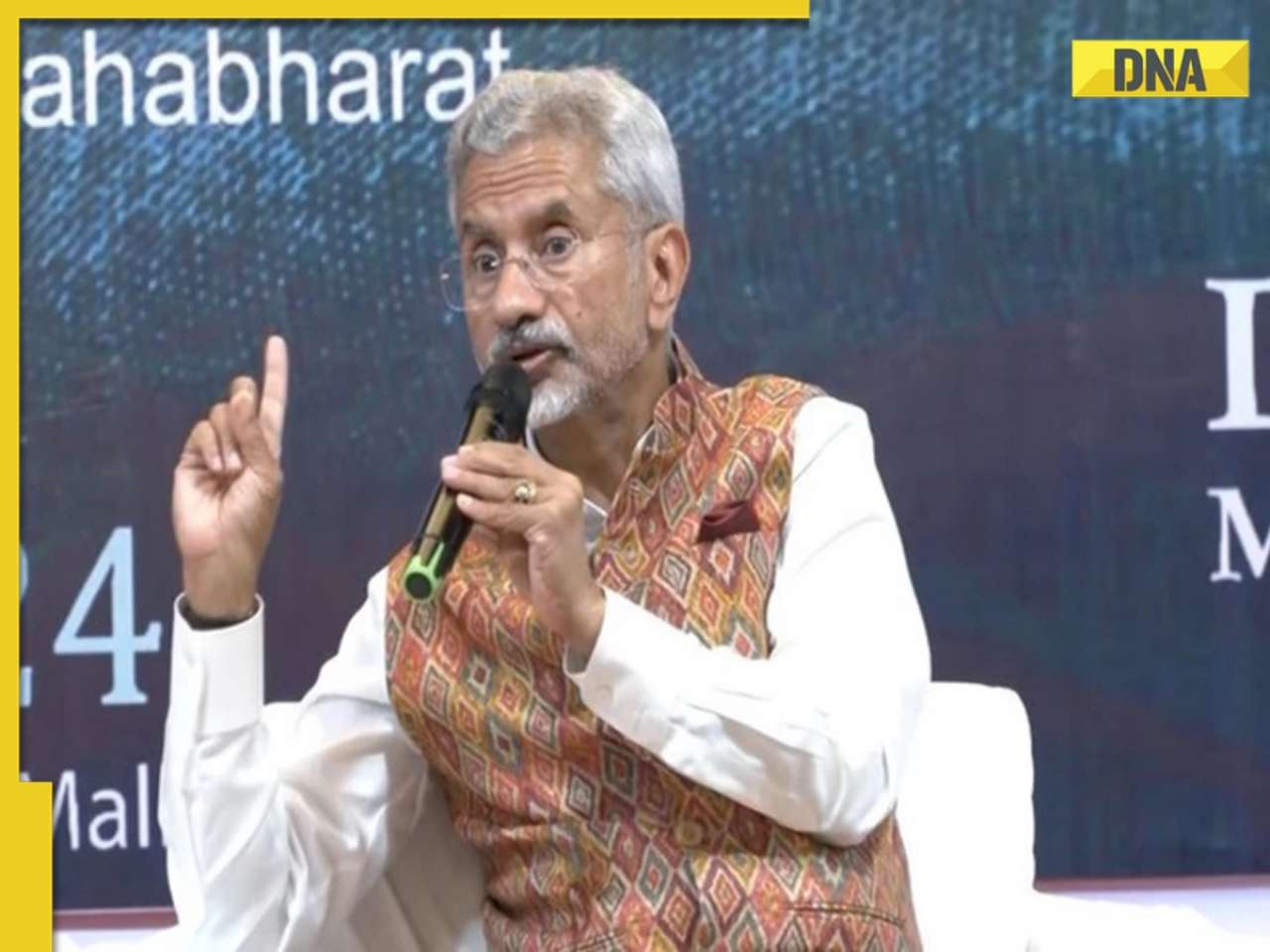







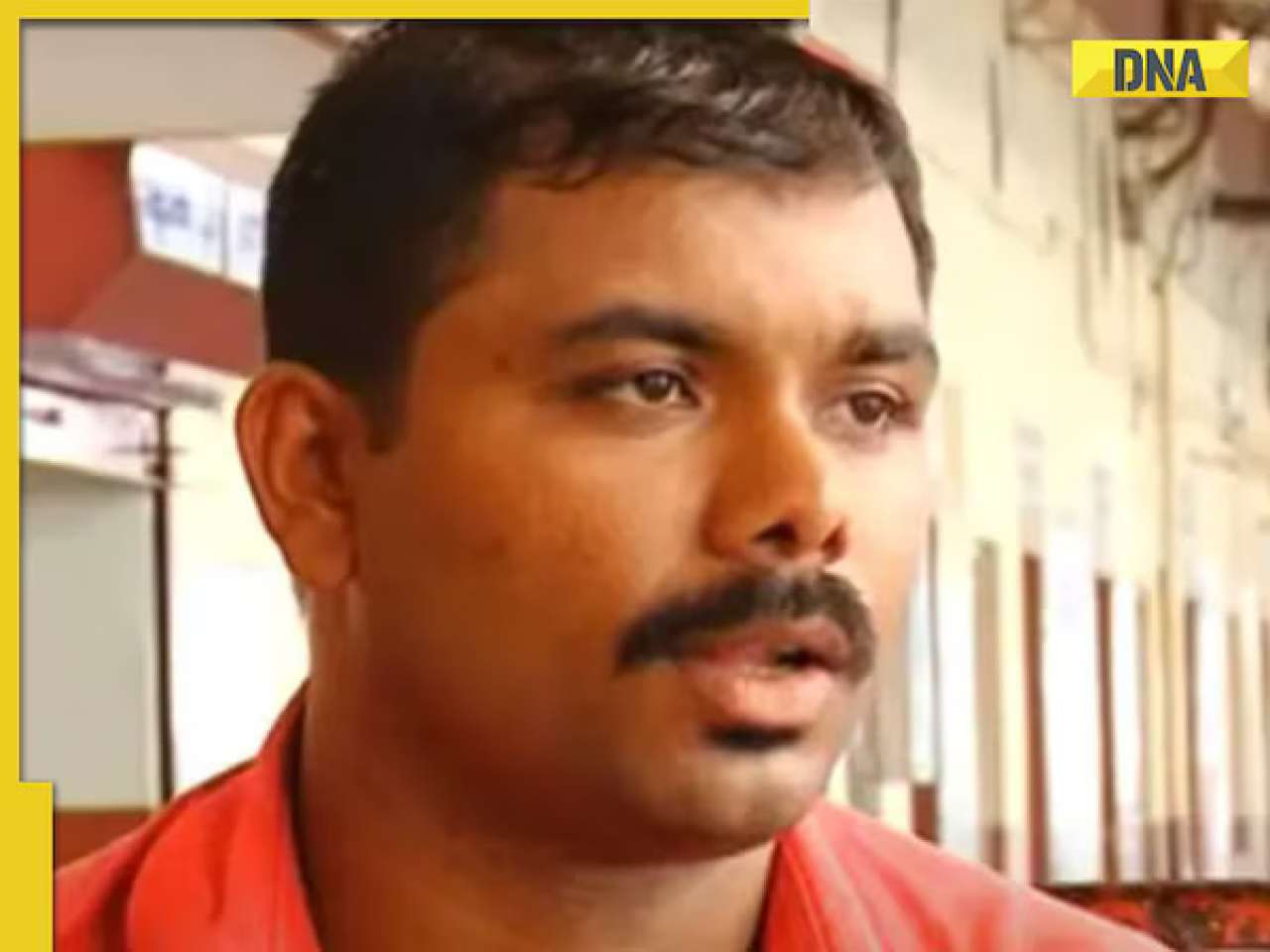





















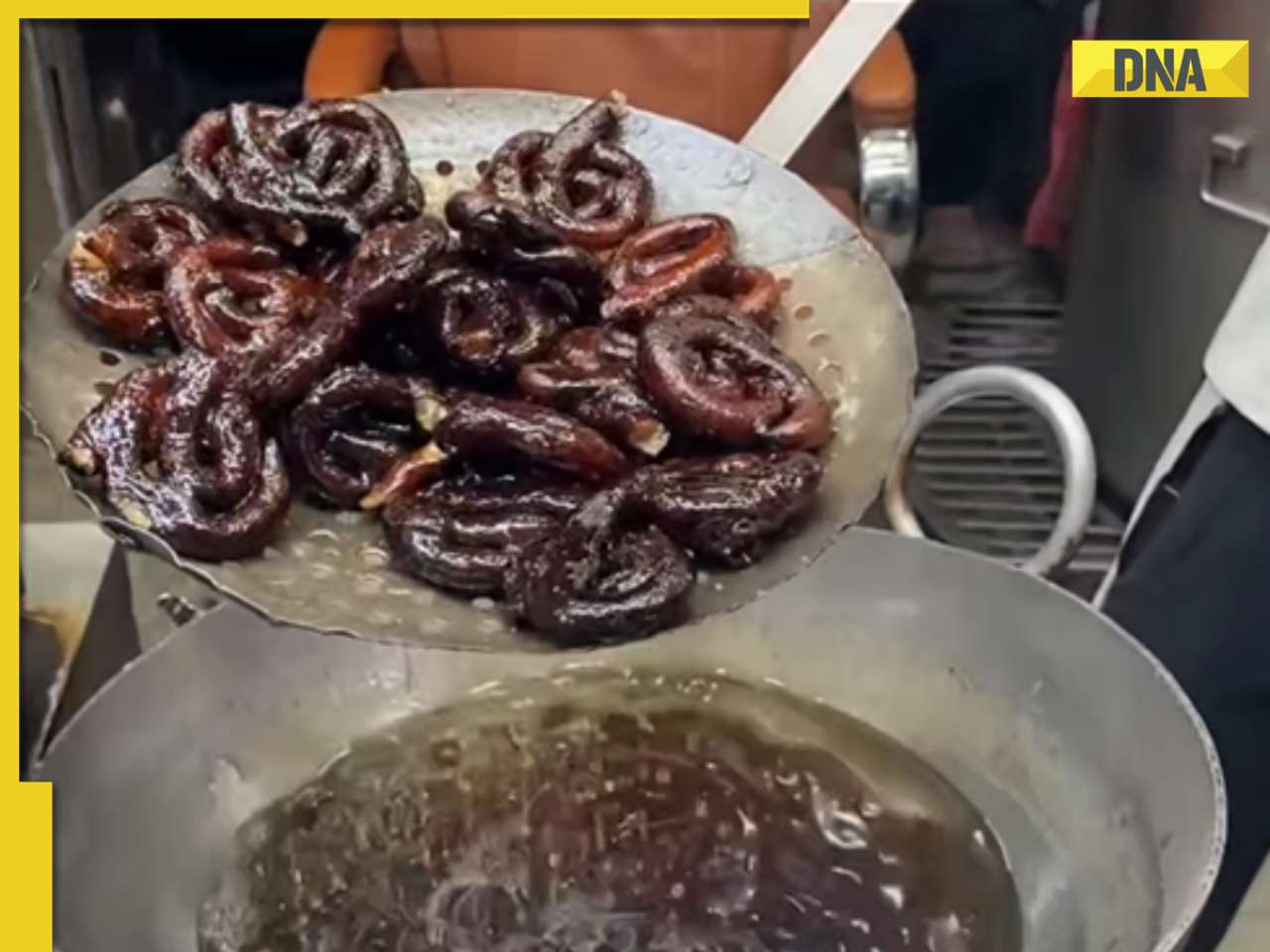




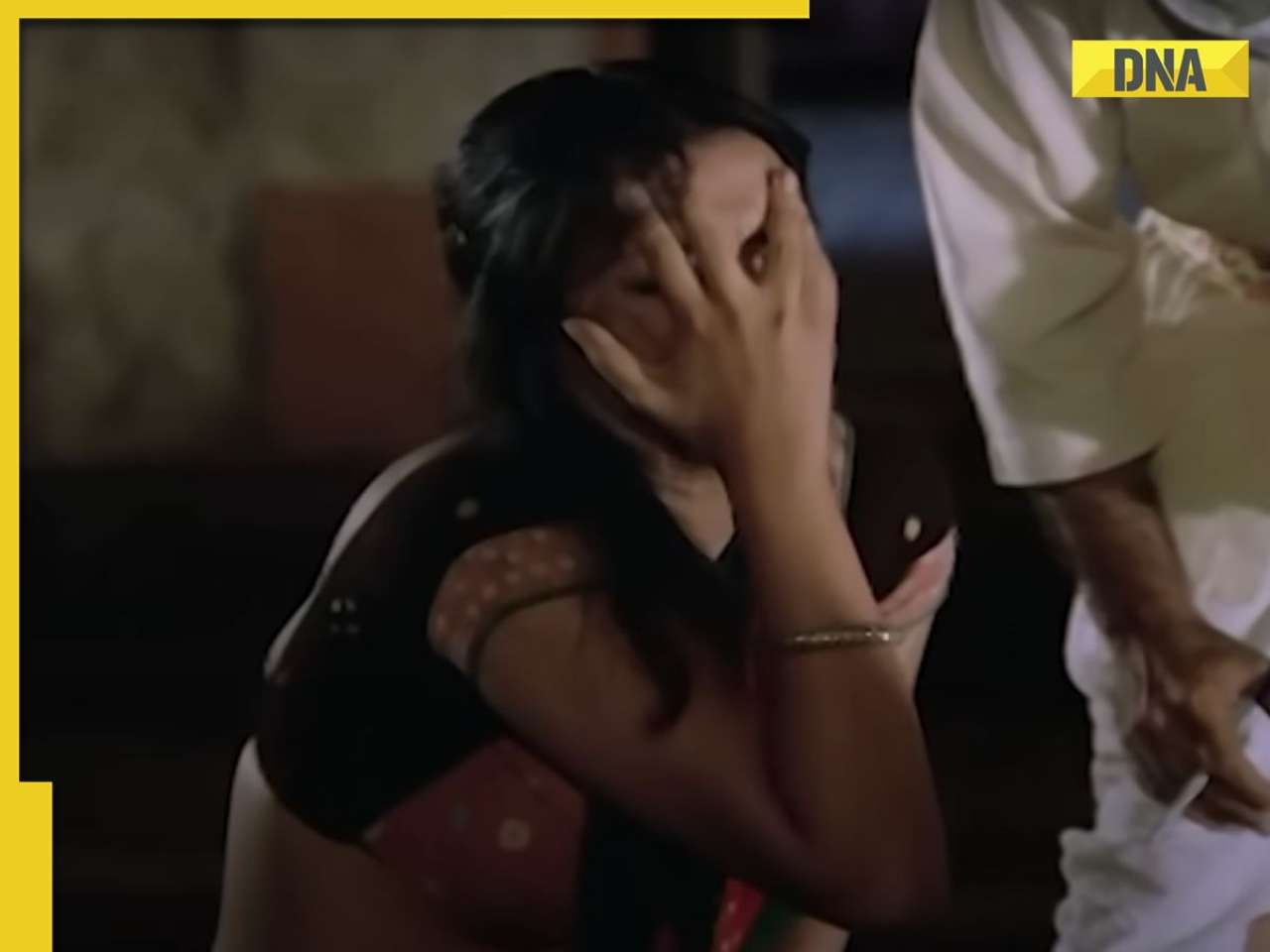


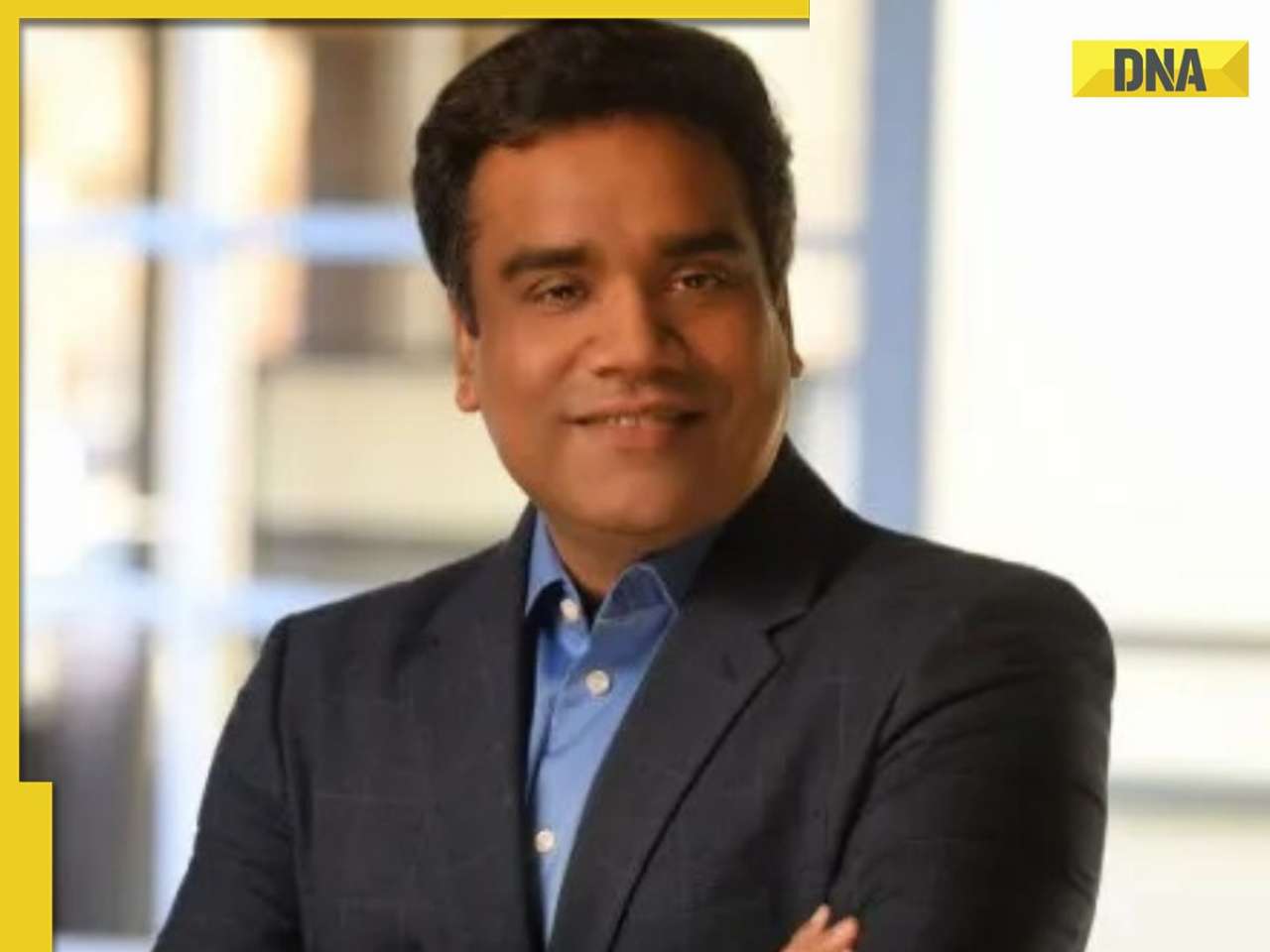




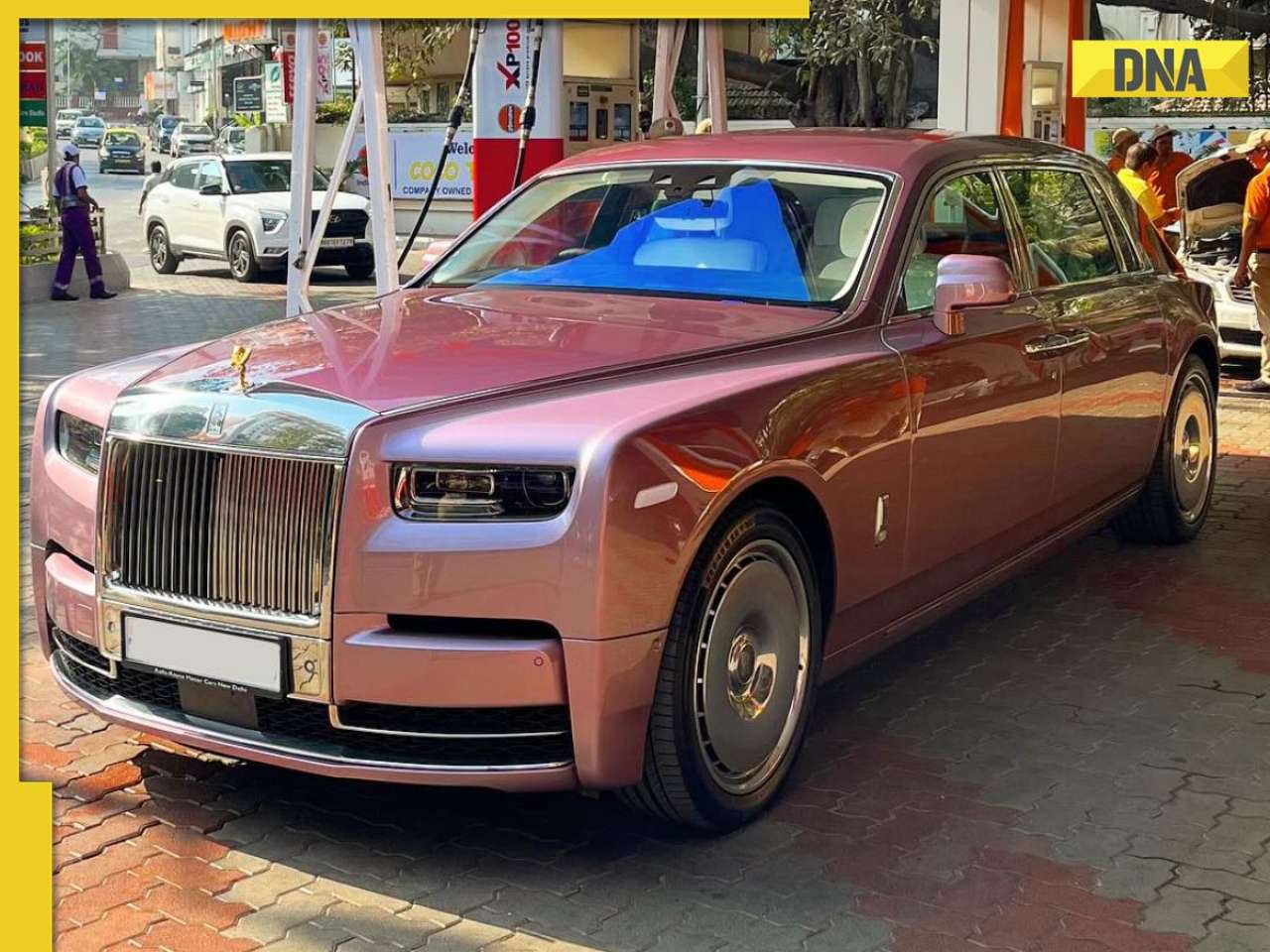
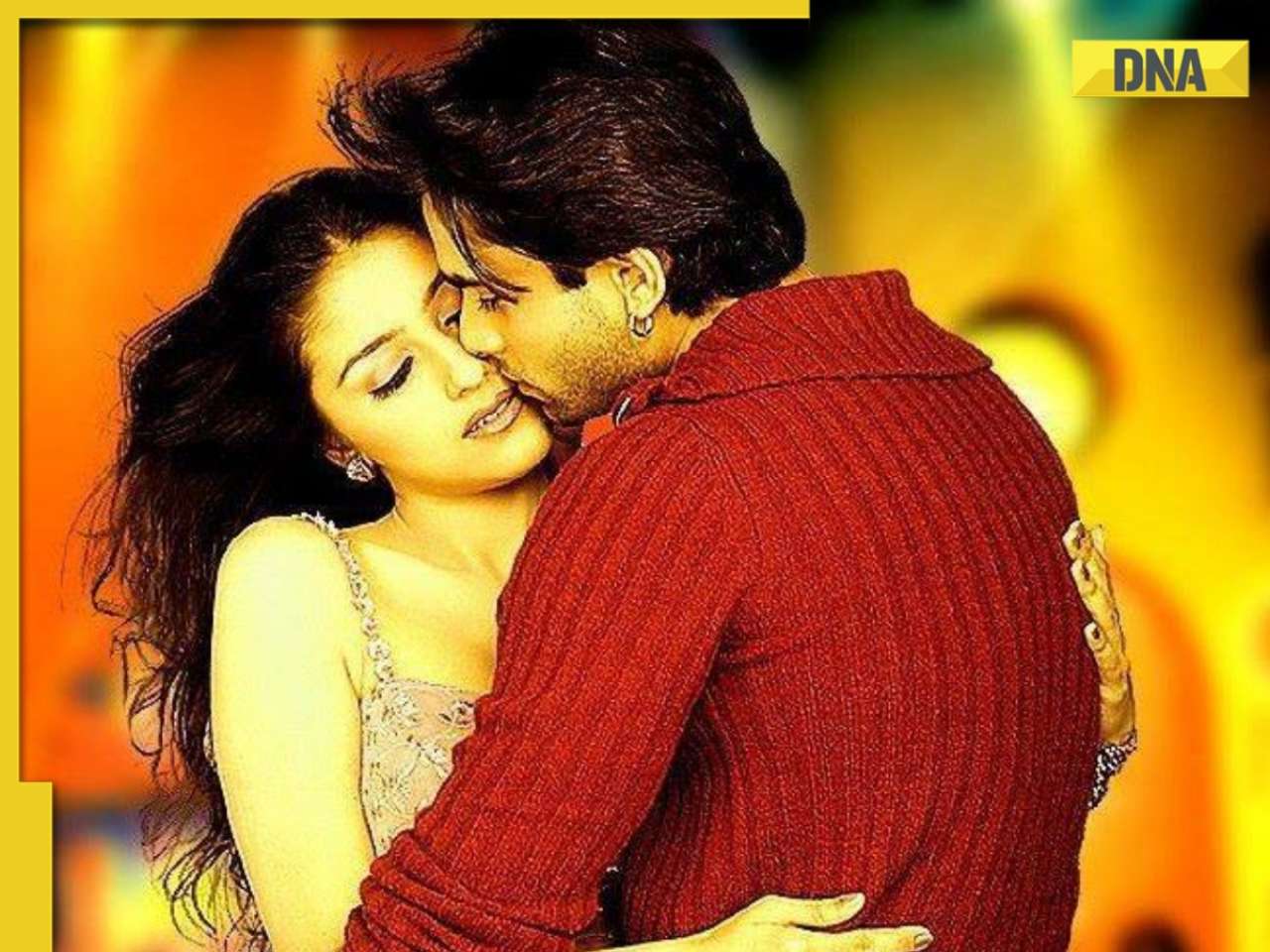
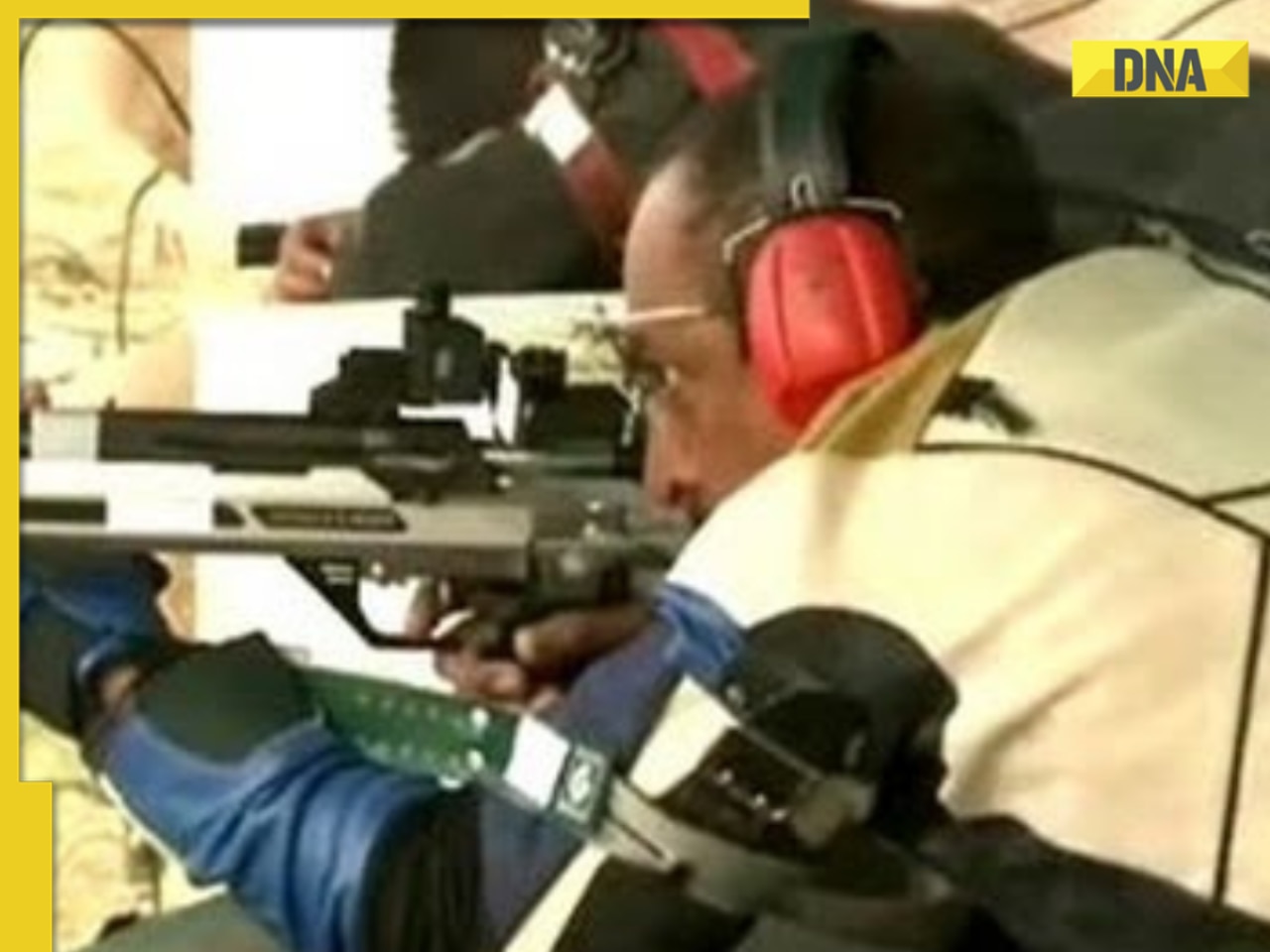




)
)
)
)
)
)